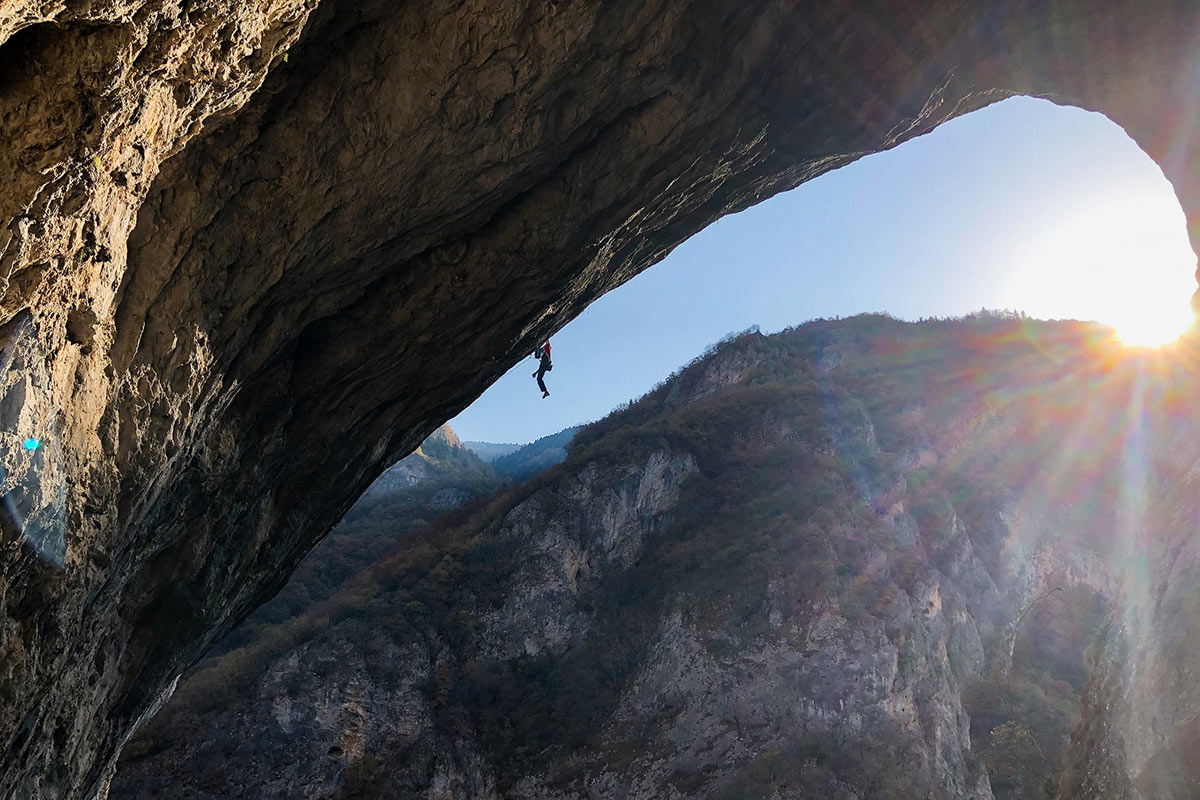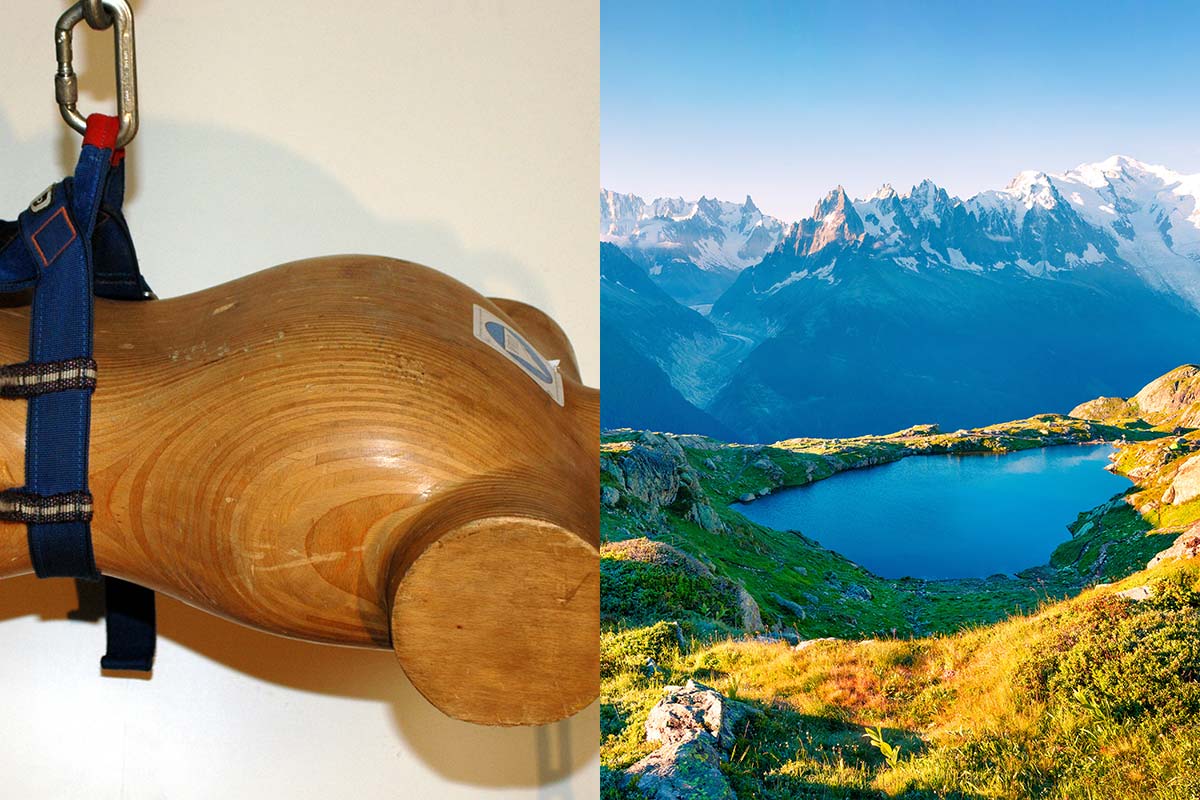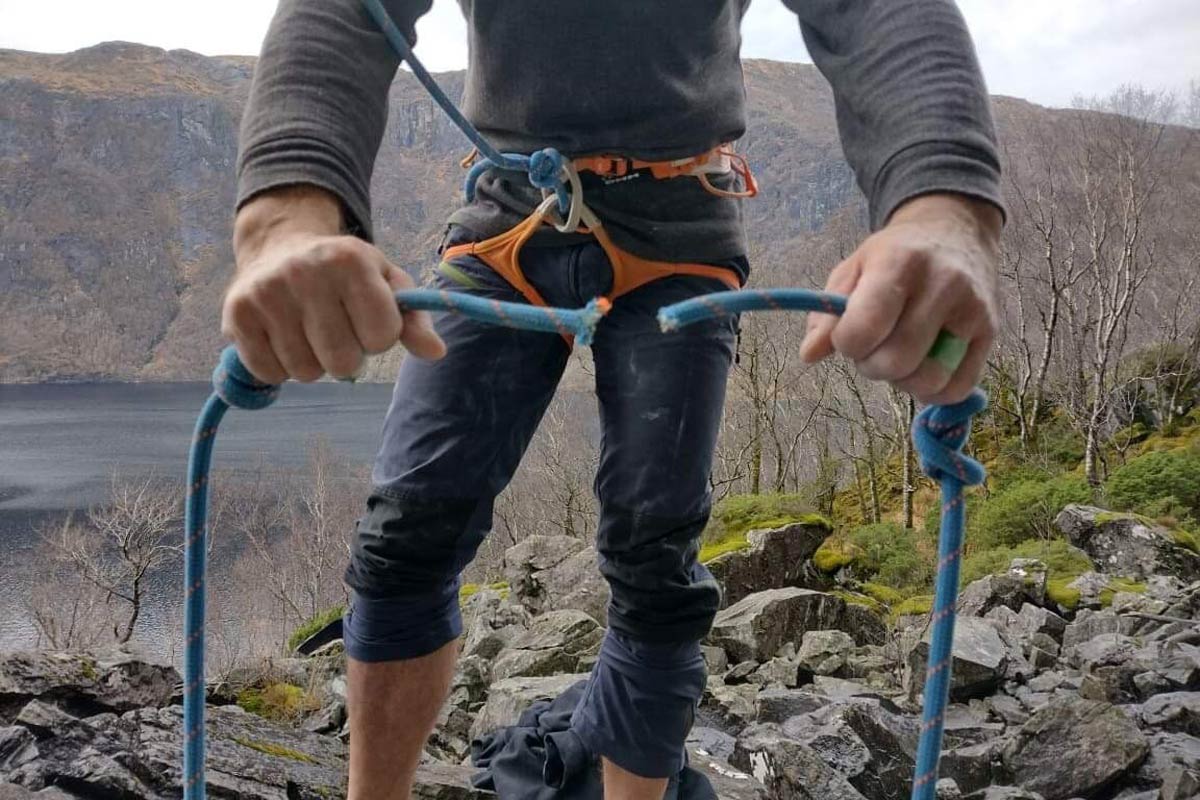At the end of April, the Mountaineering Federation of North Macedonia (FPSM) will host the UIAA spring meetings. This includes the UIAA Management Committee meeting, several Commission meetings as well as the General Assemblies of both EUMA (European Mountaineering Associations) and BMU (Balkan Mountaineering Union). For the UIAA it will be the first major in-person gathering since the General Assembly in 2019.
Counting nearly 300 full members, the FPSM is one of the most active federations within the UIAA contributing personnel to a number of Commissions and actively translating and disseminating a number of UIAA resources on a national level.
Through the support of FPSM delegates, including Goran Nikoloski and Aleksandar Stojanovski Culi, details on the federation’s heritage, current projects and the climbing scene in North Macedonia are provided in this article.
HISTORY OF THE MOUNTAINEERING FEDERATION OF NORTH MACEDONIA (FPSM)
The FPSM was founded in 1948 and has been a full member of the UIAA since 1999. Organised mountaineering activities in North Macedonia date back to the 1920s with excursions of the Zlatovrv mountain club from the city of Prilep. The first recorded ascents on higher Macedonian and Balkan mountains were achieved in the 1960s.
The famous Macedonian Himalayan expedition in 1989 brought joy and sadness when Dimitar Ilievski climbed Mount Everest, but lost his life on the way down. The upward trajectory of the mountaineering and climbing in North Macedonia slowed somewhat after the country gained independence in 1991, but, now, with help of friends from BMU, EUMA and UIAA, Macedonian mountaineering and rock climbing has gained a new impulse. Since when a number of Macedonians have climbed Mount Everest, K2, Annapurna and other major peaks.
FPSM is very proud of being a founding member of the BMU (Balkan Mountaineering Union) whose seat resides in Skopje. FPSM is also one of founding members of EUMA (European Mountaineering Associations). FPSM is also a regional hub for the education of mountain guides for Kosovo and Montenegro.
The main goals of FPSM are to bring together, and give voice to the Macedonian mountaineering community; to promote mountaineering experiences; responsible access in the mountains; and excellence in mountain skills.
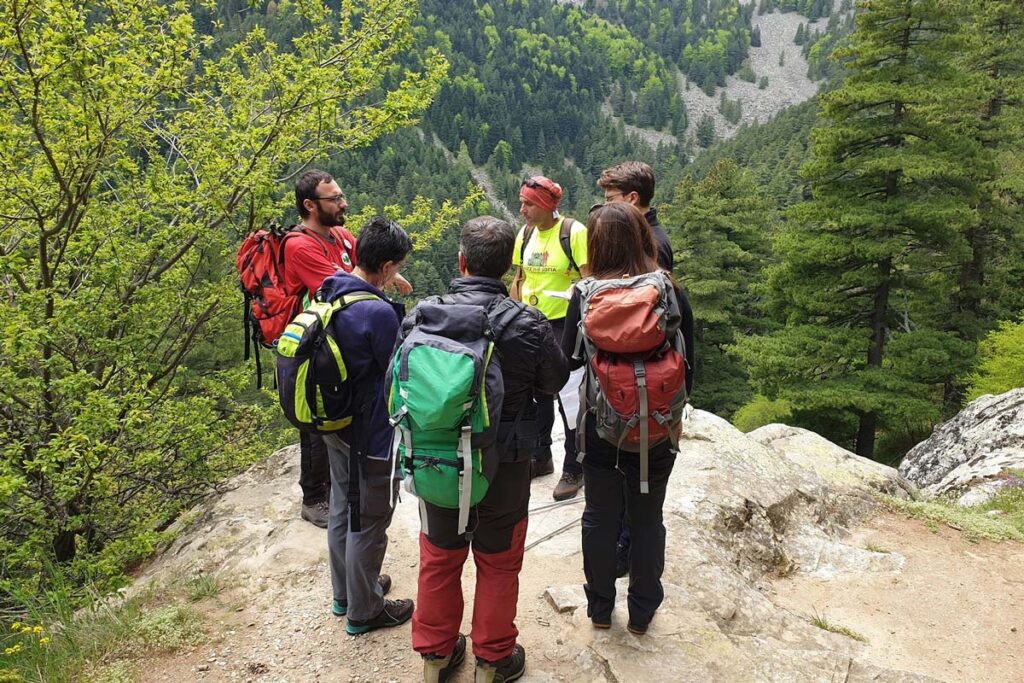
FPSM VOLUNTEERS WORKING IN THE UIAA
FPSM is the one of the most sizeable non-governmental non-profitable sport organisations in the Republic of North Macedonia organised through 56 mountaineering clubs across the country. The functioning of the FPSM is managed by its President, Executive Committee, and commissions, all on a voluntary basis. The FPSM argues that the mountain trails and routes are the biggest playing field in the country, and it is of a great importance to maintain and develop the existing mountain infrastructure. As the FPSM explains: “We are entangled in administrative encounters with the government concerning maintaining mountain trails and huts, which absorbs our scarce physical and financial resources. That is why it is of great importance to have support from UIAA and exchange of good governance practices.”
The current FPSM volunteers working within the UIAA are:
Goran Nikoloski, Access Commission, Full Member
Zdravko Dejanovikj, Ice Climbing Commission, Corresponding Member
Juliana Stojanovska, Legal Exports Working Group
Ilina Arsova, Mountaineering Commission, Corresponding Member (+Expeditions WG)
Aleksandar Kirkovski, Mountaineering Commission, Full Member
Irena Dikov, Youth Commission, Full Member
Vladimir Trpovski, Youth Commission, Full Member
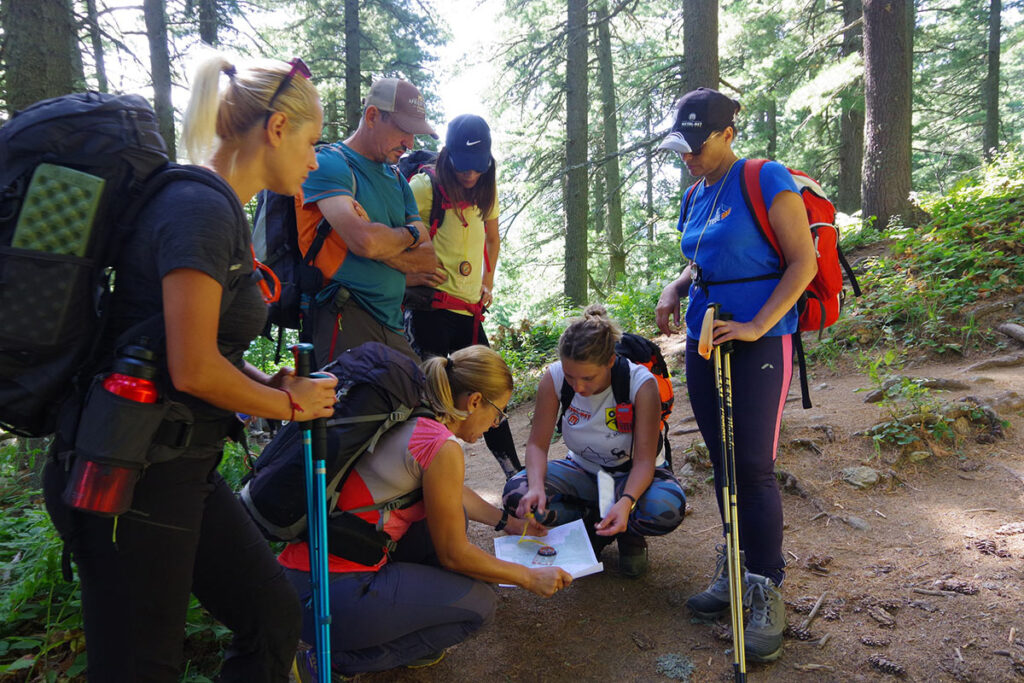
PRIMARY INTERESTS OF FPSM MEMBERSHIP
Maintenance and reconstruction of the country’s mountaineering infrastructure is a main interest of FPSM. As the FPSM explains: “Because the government often rules independently concerning mountaineering infrastructure (trails and huts), without understanding all of the underlying issues and without consulting with FPSM, a proactive approach towards government is needed.”
The FPSM provides a framework for the organisation of climbing and mountaineering in North Macedonia, helps manage the existing infrastructure and engages with all stakeholders in improving the status and condition of the mountaineering environment.
ABOUT THE CLIMBING ENVIRONMENT IN NORTH MACEDONIA
Approximately 80% of the territory of North Macedonia is mountainous, with 45 peaks rising above 2500m. The highest elevation is at Mount Korab (2753m). The average height is 832m above sea level, which makes North Macedonia one of the highest countries in Europe. Terrain is ideal for hiking, trekking, climbing, ski touring, skyrunning, MTB, and other outdoor activities on 38 mountains and mountain massifs. There are also numerous well bolted and prepared climbing areas with limestone quality rock.
Details on some of the main attractions:
- The highest artificial climbing wall in the Balkans, near the river Vardar, in the residential area Karpos IV, 4km from the centre of the capital Skopje.
- Matka Canyon is located 16km west of Skopje, on the way to Tetovo. It offers both traditional and fixed route climbing. Matka is a wilderness area cantered on the River Treska and Lake Matka. In the area there are Macedonian Orthodox monasteries dating from the 13th century that are accessible along easy trails.
- Bislimska klisura (ravine), 25km from Skopje, is located near town Kumanovo, in the northern part of Macedonia, just before the North Macedonian-Serbian border
- Demir Kapija is one of the best places in Macedonia for climbing, and other outdoor activities. It lies 117km from Skopje. There are 16 sectors for sport climbing, more than 200 routes have varying category of difficulty from 4 to 8c, and about 20 bolting multi-pitch, and infinite potential for old and new trad routes.
- Mavrovo National Park is located in the high mountains in the western part of the country. Macedonian sport climbers admire the beautiful and vivid rocks in the gorgeous canyon on Radika River. The distance from Skopje is around 110 km, which takes about an hour and a half by car.
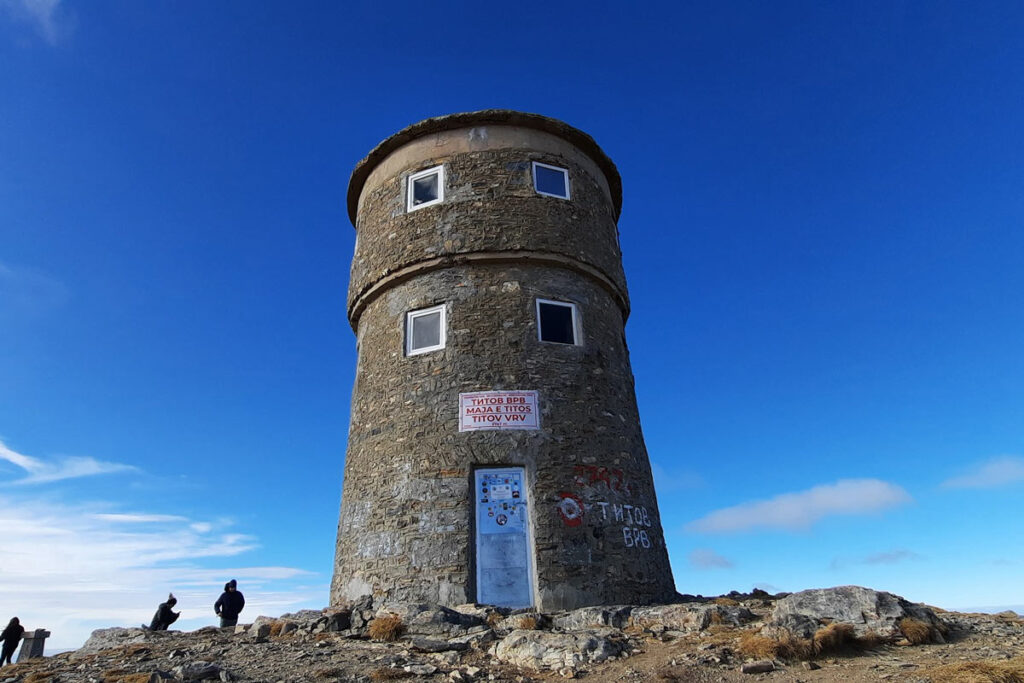
ACCESS RESTRICTIONS IN NORTH MACEDONIA
Access restrictions imposed on climbers visiting the Galičica National Park are still active, despite FPSM’s lobbying on TV and social networks, through the UIAA, and during a meeting with the Deputy Minister of Environment and Physical Planning, who has overall supervision of all national parks. There is no access restriction to rock climbing locations which have marked access and parking places.
FPSM PRESENT DAY PRIORITIES
As a partner, FPSM is participating in the Erasmus + project “EUMA – improvement of good governance of climbing and mountaineering in Europe”. The analysis gave FPSM deep insight of the situation with the mountain huts, trails and climbing sites, not only in North Macedonia, but in 14 other countries in Europe. FPSM has used the analysis to prepare rich documents about country’s mountain infrastructure and to approach the Ministry of Environment and Physical Planning and request for support for systematic solutions of problems concerning huts, trails and climbing sites.
With the 2021 publication of the UIAA Alpine Skills: Summer Handbook in the Macedonian language, in cooperation with the UIAA and with technical support of the Petzl Foundation, in September 2021, FPSM acquired an educational tool for Macedonian mountaineers, instructors, climbers and alpinists. The Handbook is a great mountaineering culture promotional tool among the participants in the outdoor activities in North Macedonia. The Handbook and definition of climbing terms has helped enrich the Macedonian language, too.
FPSM ALIGNS WITH UIAA PROJECTS
FPSM regularly translates and disseminates information about UIAA webinars, calls for the UIAA Mountain Protection Award, equipment recalls and warnings, and interesting articles published on the UIAA Mountain Medicine website page.
The articles and information are translated from experienced mountaineers and climbers and disseminated on the FPSM website and social networks. As a result of participating in the UIAA webinar celebrating International Mountain Day in December 2021, FPSM started cooperating with one of the presenters, and became active participant in their project “‘Plastic Waste in Remote and Mountainous Areas’.
While participating in one UIAA webinar, Ilina Arsova, an artist and a climber from North Macedonia (and UIAA Mountaineering Commission member), presented her work with other women climbers and mountaineers, which then became an interesting subject for another UIAA Webinar “Mountain Women and Herstory”.
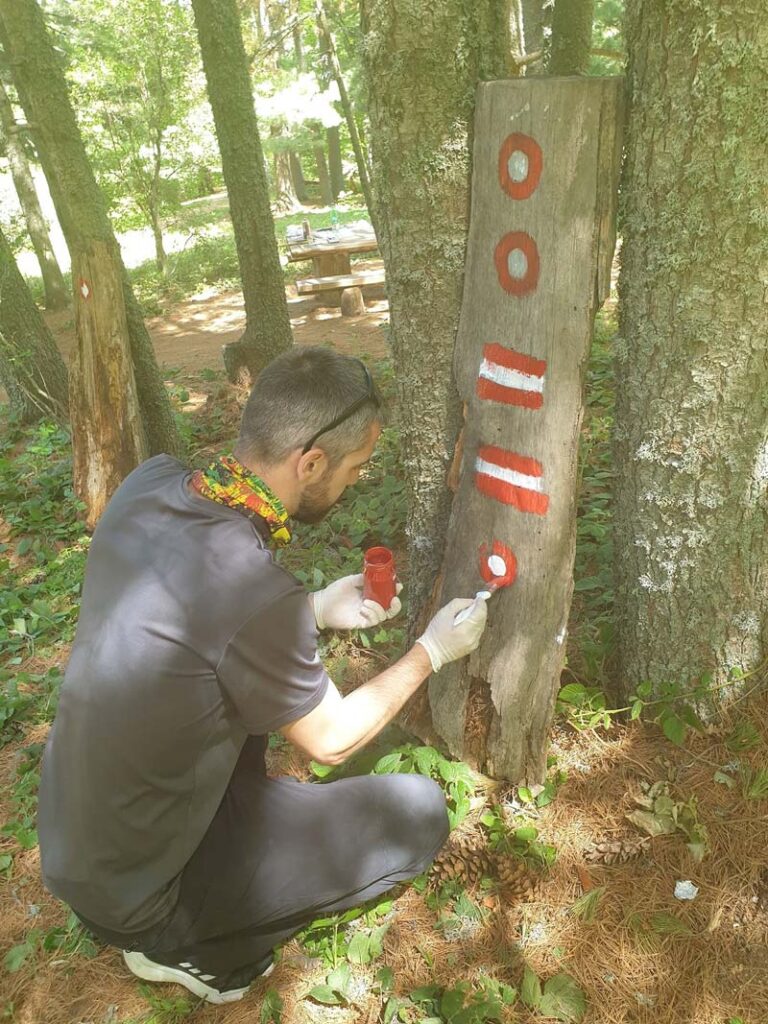
Credit: FPSM
FPSM ON HOSTING THE UIAA SPRING MEETINGS
As the FPSM explain: “For a nation of only just over two million people, every interaction with colleagues, mountaineers and climbers, is enriching. The FPSM started organising the UIAA spring meetings in 2020, before Covid prevailed. The federation is delighted that after two years of long online meetings, sometimes stumbling through tech issues, we will see our colleagues from Switzerland, Canada, South Korea, Argentina, India, France, Cyprus … in person. Online meetings will be the far distant Option 2 for the spring meetings in April in Skopje.”
FURTHER DETAILS ON RECENT FPSM PROJECTS
- Over the last five years, FPSM has targeted one of the burning issues in the mountaineering community, education and mitigation of risk inherent to mountain activities. Awareness has been raised through the printing of several books and brochures such as Alpine Skills: Summer Handbook, basics of rambling in summer and winter conditions, a medical handbook for mountaineers and climbers, and a Brochure for safe mountaineering.
- Throughout 2022 FPSM is continuing to organise training for mountain guides, which will increase the number of educated mountain guides and especially the number of female guides to above 30% of all registered guides in FPSM. Additionally, training for trailsetters started in 2021 will finish in June 2022.
- The North Macedonia Skyrunning team participated in two major events in 2021; the 2021 Skyrunning European Championship in São Pedro do Sul in Portugal (11th place out of 20 country teams) and in the fifth World Sky Running Championship in Vall de Boí, Spain (12th place out of 24 country teams). Skyrunning is one of two competition sport activities in Mountaineering Federation of North Macedonia (FPSM) which witness constant growth and successes. The other competition sport within the federation is in mountaineering orienteering whose team successfully participated in the Balkan Championship in Montenegro.
- In 2020 FPSM was part of the “Improving the management of the protected areas” project, funded from United Nations Development Programme (UNDP), and now, in 2022 is part of several projects, including “‘Plastic Waste in Remote and Mountainous Areas’, implemented by the Secretariat of the Basel, Rotterdam and Stockholm Conventions with funding from the Governments of Norway and France, and GEF project “Biodiversity conservation, sustainable land management and sustainable tourism development in North Macedonia”, funded by United Nations Environment Programme (UNEP).
All photos, credit FPSM. Main photo: Adam Ondra at Mavrovo Cave (Credit – Dimitar Popov)

